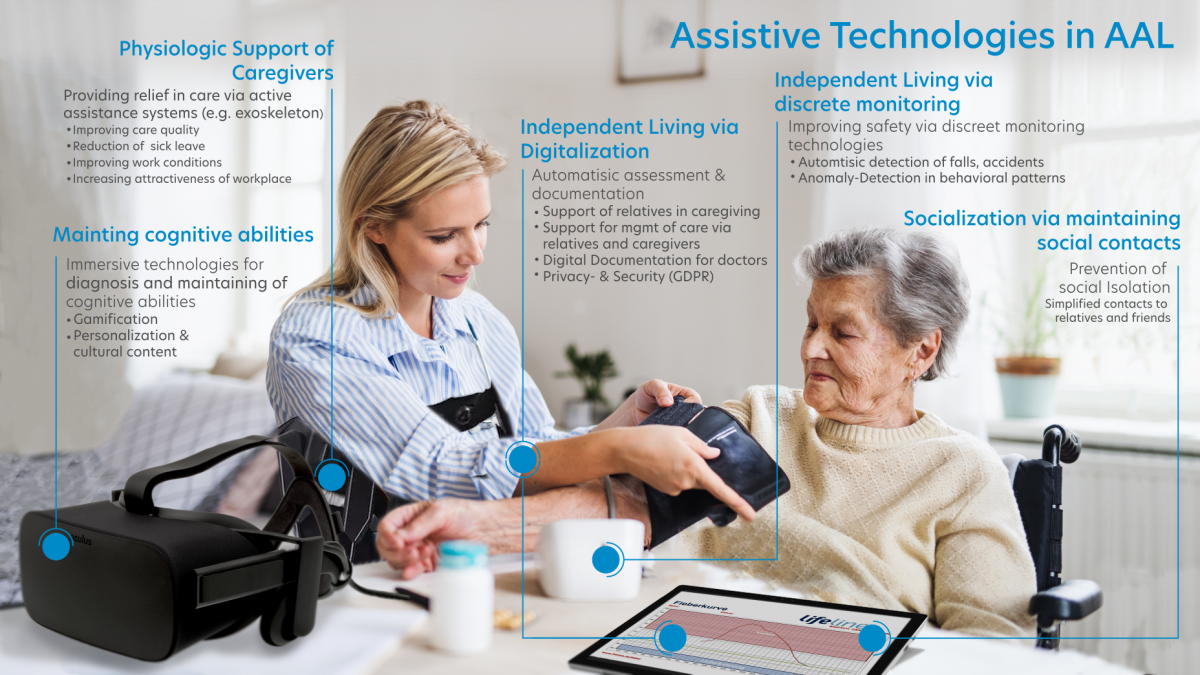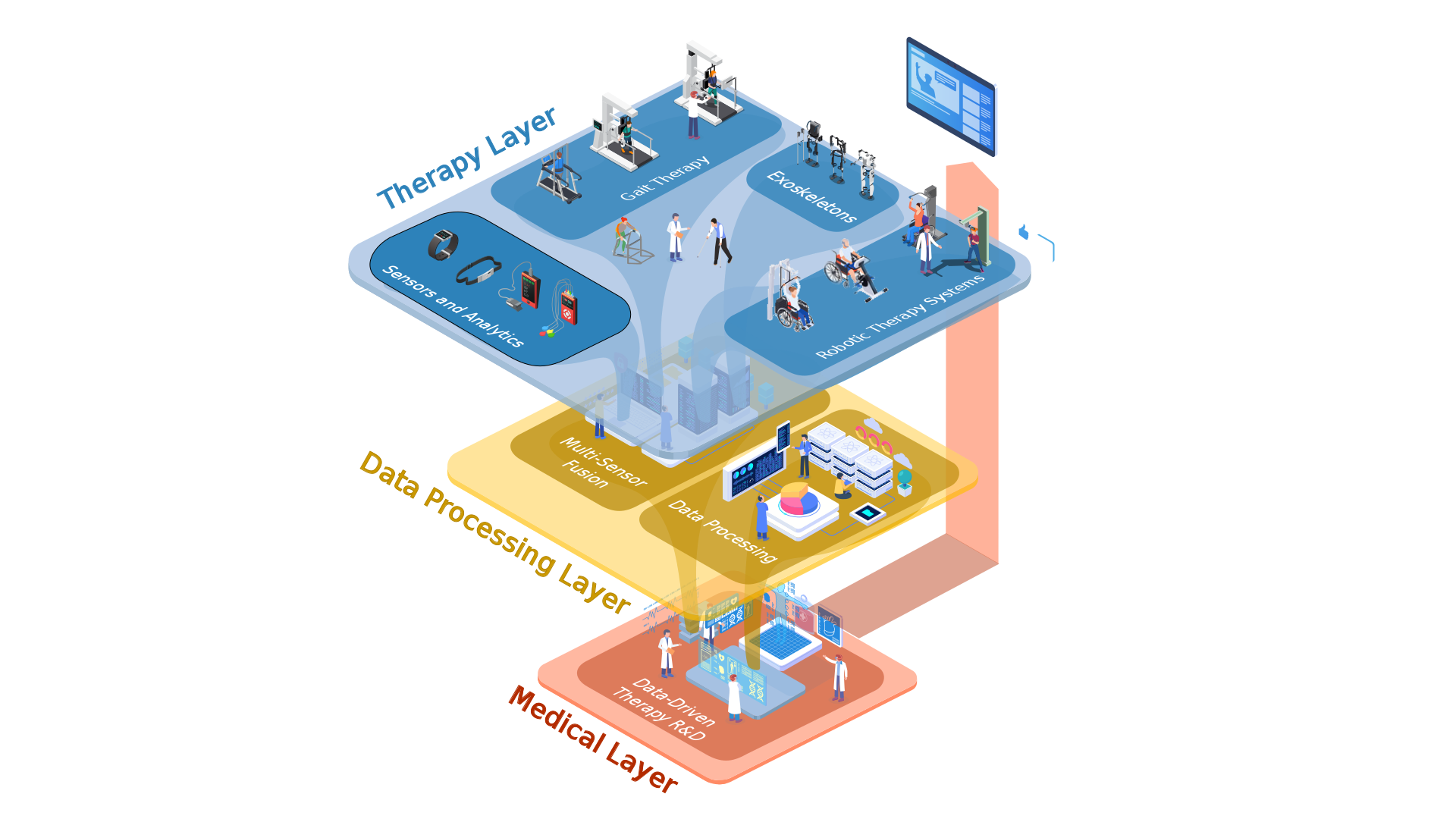
RSA FG supports tech2people in the development of digital, robotics-assisted therapy methods and actively researches new technologies in the field of AAL.
The aging of Austria’s population presents the country with new challenges, such as a sharp increase in the need for care services. In addition, 150,000 people with transverse paralysis and 300,000 with multiple sclerosis live in the DACH region. Furthermore, there are about 250,000 stroke patients per year. Continuous advances in digitalization and assistive technology offer opportunities to support and strengthen both care and convalescence by means of physiotherapy in a fundamentally new way.
The Research Studios Austria Forschungsgesellschaft (RSA FG) pursues several strategies to intervene here in a supportive manner. As a research partner of tech2people, the RSA FG supports the project “EDIT — Evolving Data Improved Therapy”, which was competitively selected and funded by the FFG.
The goal of EDIT is to optimally support as many patients as possible through individualized forms of therapy. Modern robotics-based therapy devices offer enormous potential in this regard. Exoskeletons and other assistive therapy devices help to restore physical body functions faster and in a more targeted manner than conventional rehabilitation measures; however, the major innovation factor lies primarily in the combination of devices and their data and AI-driven data analysis and therapy development, the possibilities of which have hardly been used to date. therapy2people, a spin-off of tech2people, is building a therapy center in Vienna Aspern for this purpose, in which such robotic multi-device therapies will be made available to patients.

Furthermore, the EDIT project pursues the goal of improving the motivation of patients and thus the therapy outcome through the measurability of therapy progress and gamification approaches via virtual reality applications – developed by Soma Reality.
Moreover, the RSA FG pursues goals in the context of AAL (Ambient Assisted Living). AAL makes it possible to use IoT (Internet of Things) systems to support staff in the care of elderly people in carrying out their work, as well as to use sensors and physical support technology directly at the patient’s home. The aim is to reduce the workload for caregivers and improve the quality of life and safety of patients.
This article was first published on OTS.at.
You can find more information about this project here:
https://ercim-news.ercim.eu/en130/special/social-inclusion-health-and-content
https://ercim-news.ercim.eu/en130/special/enabling-data-driven-robotic-physical-therapy

